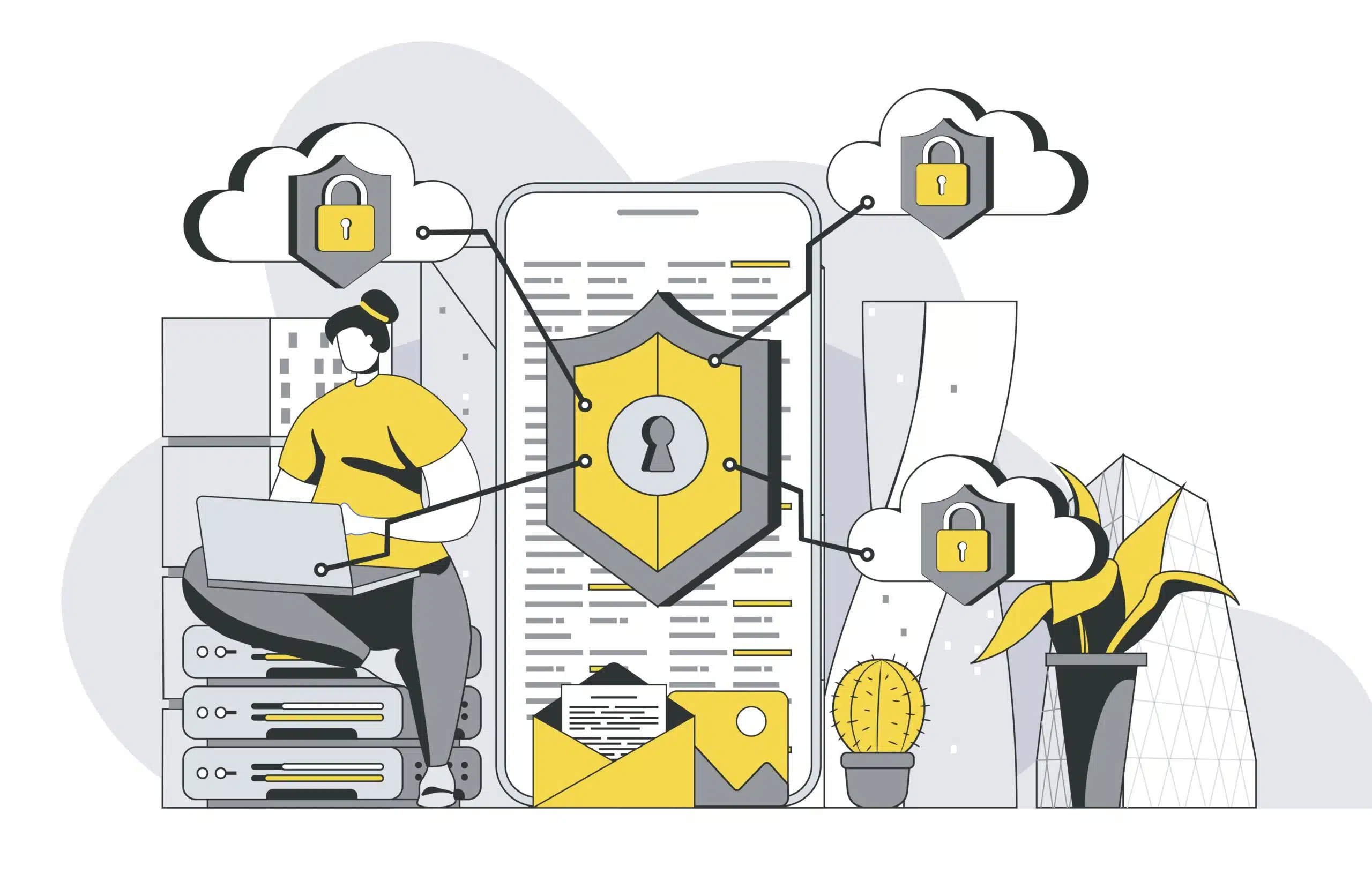

Since the beginning of 2022, the numbers of cyber-attacks cases in Indonesia have increased significantly and for any business or organization, network security is crucial as networks are prone to attacks at any time. As the network expands, so do all its vulnerabilities. Cyber threats are continuously evolving. For their own personal interests, cybercriminals and hackers would always attempt to breach network defenses.
One of the benefits of implementing network security as a solution is to fend off these attacks on computer networks. Numerous ways are available to apply network security. However, an adequate knowledge in advance on the ins and outs of network security, including its types and benefits, are still required to enhance its effectivity.
What is, essentially, network security is? It simply refers to any form of process or technology, a set of guidelines and configurations, created to protect the integrity, confidentiality, and availability of data and accessibility of computer networks both software and hardware technologies. This system identifies various cyber threats and prevents them from infiltrating the network.
If there is no network security system equipped on the company computer, The network system’s damage occurred may interfere with the company’s operations and performance. This issue may be so extensive and widespread within the company that it may seriously harm your business.
If you engage in a variety of online activities, network security is vital to incorporate. Virtually everything we do requires a network connection. The following advantages are sufficient to explain the importance of implementing network security in corporate computer networks.

Let’s look at some of the different kinds of network security that businesses frequently employ.
The purpose of access control is to restrict who can access your computer network. Integrations with Identity and Access Management (IAM) products can strongly identify the user and Role-based Access Control (RBAC) policies to ensure the person and device are authorized access to the asset and remove or limit access to unrecognized devices and users.
Software to address malware and viruses is basically the same thing. Malware, which includes viruses, worms, ransomware, spyware, and trojan horses, is at its root cause. By using the scan feature, this software will block the entry of malware and protect all secure files from attacks.
Companies developing applications can benefit from this security system. Applications are considered more easily compromised since they are so exposed to assaults. To counteract these threats and keep your credibility, application developers must implement application security.
Important data, IP addresses, services, and enterprise applications in cloud computing need to be kept secure. Cloud security is beneficial in preventing attacks from infiltrating cloud computing systems so that company employees feel secure when accessing them.
Companies urgently require this security system to prevent the exposure of sensitive information outside of an organization. If any processes are deemed unsafe, Data Loss Prevention (DLP) can keep them from occurring, including uploading, downloading, forwarding, and printing.
Email security is effective in countering external threats and monitoring messages transmitted so that confidential information is not compromised. Another crucial component of email security is anti-spam, which keeps users undisturbed.
A firewall is a safety measure which prevent malware or foreign networks from infiltrating your computer. Typically, personal computers (PCs) or laptops incorporate this security feature. Nowadays, most firewalls are installed not only on personal computers or laptops, but also as software to protect devices and web servers.
Every segment function as a separate network owner. The network is separated according to IP address, role (role), location (location), and other factors. According to their segmentation, users are given the appropriate level of access. Network segmentation can therefore detect suspicious devices and prevent them from connecting.
A virtual private network (VPN) is a security system designed to safeguard private information when using the internet. A VPN functions by encrypting the internet connection between the endpoint and the network. IPsec or Secure Socket Layer (SSL) features in remote access VPNs are used to authenticate communication between the network and the connected device.
A web gateway on a website or in the cloud is protected by this form of network security. A computer network requires this system installed to deny computer users from accessing malicious websites.
To improve the security of the company’s computer networks, you must take practical steps.
This step aims to prevent access from leaking to systems outside the company’s network. Whenever the router interface feature is enabled, hackers can access the router system. Once they enter the system, they may examine the router’s log files, and begin their actions.
You should periodically back-up important files and data on your computer. Even if your computer has been infected by malware, backups keep crucial data secure. To improve security guarantee and have unlimited capacity, you can save the results of your data backup in the cloud.
The growth of malware, like that of technology, has led to the emergence of numerous new sorts of attacks. Therefore, you must ensure that the antivirus or anti-malware software installed on your computer is the latest version. A computer’s malware infestation can be more efficiently stopped by using updated software.
Consider modifying the router’s SSID setting. Avoid SSID names that indicate a specific business name or location. Hackers may come up with numerous strategies to target your computer network system since they can locate the SSID more easily.
Network security is an important and mandatory component in business world. You must always be vigilant and strengthen your computer networks’ security should any openings arise and cybercriminals may take the advantage to attack.